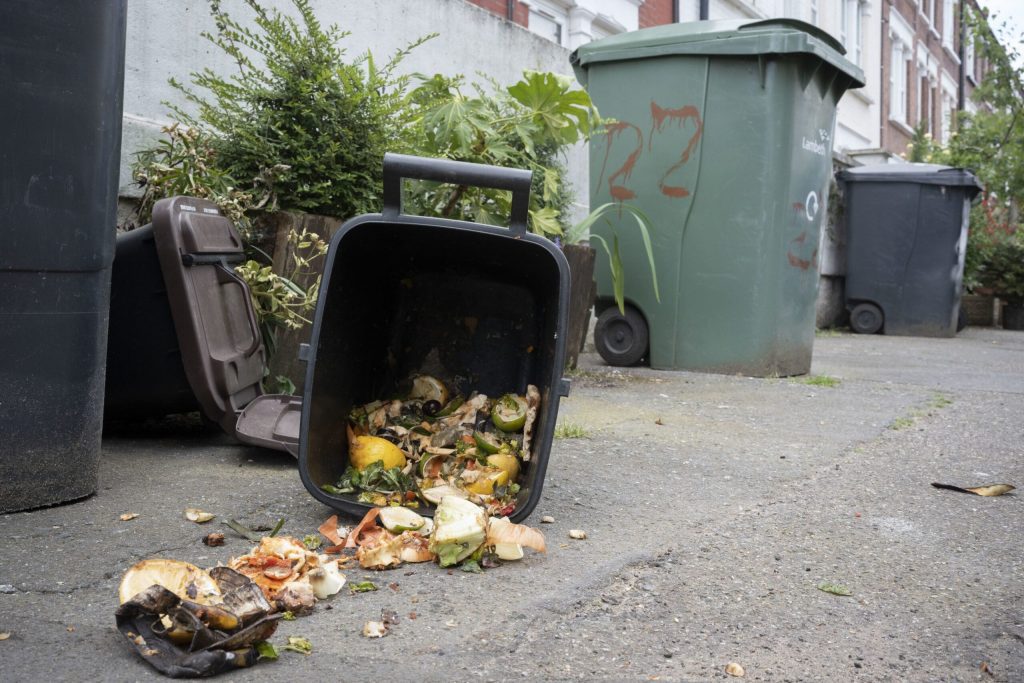In 2022, households worldwide wasted more than 1 billion meals each day, while 783 million people suffered from hunger and a third of the world's population dealt with food insecurity. The UN Environment Programme (UNEP) report, released today before the International Day of Zero Waste, reveals the harmful effects of food waste on the global economy, climate change, nature loss, and pollution. The report is called UNEP Food Waste Index Report 2024, and it was co-authored with WRAP..
The It's called UNEP Food Waste Index Report 2024.It was co-authored with WRAP. The report gives the most accurate global estimate on food waste at retail and consumer levels and offers advice to countries on how to improve data collection and reduce food waste.
In 2022, 1.05 billion tonnes of food waste were produced, which equals 132 kilograms per person and almost one-fifth of all available food. Of all wasted food, 60% came from households, 28% from food services, and 12% from retail.
“Inger Andersen, Executive Director of UNEP, said, 'Food waste is a global tragedy. Millions of people will go hungry today because of food waste.'Andersen also added, 'This is a significant issue, causing high costs to the climate and nature. However, countries can make a big difference if they focus on this problem and work to reduce food loss and waste.'Since 2021, more studies have been conducted on food waste, and the number of data points at the household level has nearly doubled. However, many low- and middle-income countries still lack proper systems for tracking progress in reducing food waste to meet Sustainable Development Goal 12.3 by 2030.”
Only four G20 countries (Australia, Japan, UK, the USA) and the European Union have food waste estimates suitable for tracking progress to 2030. Canada and Saudi Arabia have suitable household estimates, and Brazil’s estimate is expected in late 2024. This is important because it provides countries with a practical guide to consistently measure and report food waste. The report also shows that food waste is not just a problem in wealthy countries. The levels of household food waste vary by just 7 kg per person in high-income, upper-middle, and lower-middle-income countries, and hotter countries seem to produce more food waste per person in households, possibly due to consuming more fresh foods with inedible parts and lacking proper cold storage.
Food loss and waste cause 8-10% of the world's annual greenhouse gas emissions, which is almost 5 times more than the aviation sector. It also leads to significant biodiversity loss and takes up almost a third of the world's agricultural land.
1 trillion US dollars
Cities are expected to especially benefit from efforts to strengthen reducing food waste and reusing resources in a circular way. Rural areas generally waste less food, with more food scraps going to pets, livestock, and home composting as likely reasons. By 2022, only 21 countries have included reducing food loss and waste in their national climate plans (NDCs). The process of revising NDCs in 2025 provides a crucial opportunity to increase climate ambition by integrating efforts to reduce food loss and waste..
Report on Food Waste Index
emphasizes the importance of addressing food waste at both individual and systemic levels. Strong starting points and regular measurement are necessary for countries to demonstrate changes over time. Due to the implementation of policies and collaborations, countries like Japan and the UK demonstrate that significant change is possible, with reductions of 31 percent and 18 percent respectively. Given the significant impact on the environment, society, and global economies due to food waste, we need more coordinated action across continents and supply chains. We support UNEP in urging more G20 countries to measure food waste and work towards SDG12.3,
” said Harriet Lamb, CEO of WRAP. “
“This is crucial to make sure that food is used to feed people, not fill up landfills. Public-Private Partnerships are one important method for producing results today, but they need support: whether through philanthropy, business, or government, entities must come together to support programs that address the significant impact that wasting food has on food security, our climate, and our finances.UNEP is monitoring the progress of countries in halving food waste by 2030, with an increasing focus on solutions beyond measurement towards reduction. One such solution is systemic action through public-private partnerships (PPPs): Bringing together the public sector, private sector, and non-governmental organizations to work together, identify barriers, collaborate on solutions, and make progress. Adequate funding can enable PPPs to achieve reductions in food waste from farm to fork, reduce greenhouse gas emissions and water stress, while sharing best practices and promoting innovation for long-term, comprehensive change. PPPs for reducing food loss and waste are expanding globally, including in Australia, Indonesia, Mexico, South Africa, and the UK, where they have helped reduce over a quarter of household food waste per person from 2007-18.In 2022, households across all continents wasted over 1 billion meals a day, while 783 million people were affected by hunger and a third of the global population faced food insecurity. Food…”
UNEP maintains tracking country-level progress to halve food waste by 2030, with a growing focus on solutions beyond measurement towards reduction. One such solution is systemic action through public-private partnerships (PPPs): Bringing the public sector, private sector and non-government to work together, identify bottlenecks, co-develop solutions, and drive progress. Appropriate financing can enable PPPs to deliver farm-to-fork reductions in food waste, drive down GHGs emissions and water stress, while sharing best practices and encouraging innovation for long-term, holistic change. PPPs on food loss and waste are growing worldwide, including in Australia, Indonesia, Mexico, South Africa, and in the UK where they have helped cut over a quarter of household food waste per capita from 2007-18.



